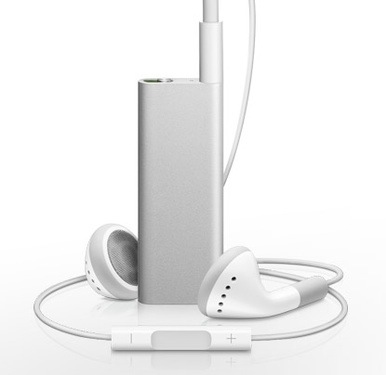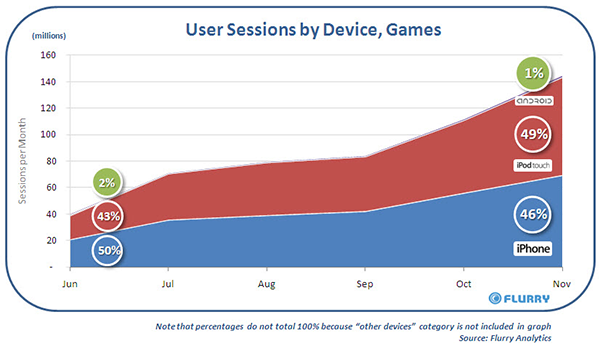
Microsoft reorg creates the Server & Cloud Division
Stranger things have happened than this. I think. Microsoft has formed a new group within the Server & Tools Business: The Server & Cloud Division, or SCD. Is it me, or is there some redundancy in the name, seeing as how cloud services run on servers?
"This change reflects the alignment of our resources with our strategy, and represents a natural evolution for Microsoft as the Windows Azure business moves from an advanced development project to a mainstream business," according to an uncredited post on Microsoft's Windows Server Division blog. The new group "combines the Windows Server & Solutions group and the Windows Azure group."

Betanews Podcast: Rupert Murdoch and the buying stuff online problem
Click here to listen to the inaugural What Are We Learning Today? Betanews podcast (MP3 format)
We inaugurate our first Betanews podcast today with a look at two serious problems -- the quandary over how publishers can make the online news business sustainable long-term, and the problem with securing the Web's transaction layer. From the top of the cliff, to borrow an Arlo Guthrie analogy, they look like two little piles; but up close, they're one big one: We haven't really solved how to pay for things online, and the TLS problem is an illustration of that.

What does AT&T's 'Mark the Spot' app say about service quality?
Do you have AT&T as wireless carrier? Are you happy with the network service quality? I encourage Betanews readers to respond in comments to these questions, which are suddenly surreal now that AT&T has released the "Mark the Spot" app for iPhone. There's something comical about an app that tells AT&T about its connection problems. The app also is tacit admission that AT&T has voice service problems. Surely for some greedy lawyer, there's a lawsuit for that.
Some readers will ask why post a commentary like this one. What's newsie about whacking AT&T aside the head for its well-publicized service problems? Answer: Most of us here -- me writing and you reading -- are gadget freaks. Many American Betanews readers use iPhone, for which there is only one official carrier choice: AT&T. In that context, bad service is a problem. Additionally, it's the holidays, when some people give the gift of phone. Since most dumbphones and smartphones are sold subsidized and locked to a single carrier, network should be considered in any handset purchase.

Nokia, can you please stop kicking yourself in the head?
Nokia has long been one of my favorite tech companies, but recently I started to lose faith in its future. When an enthusiast/fan says something like that, a company either has a serious public image crisis or serious problems. Both situations are about equally bad. I want to believe in Nokia, I really do, but recent events unravel my confidence.
Nokia's fundamental problem is retreat. The company has started to retreat before the great econolypse. Now should be the time for Nokia to make new investments -- in products and research -- not pull back on them. Retreat signals to competitors that there is vulnerability, which also can unravel customers' confidence about buying new products. In October, I switched from AT&T to T-Mobile, because of constantly annoying dropped calls and in preparation for the Nokia N900. T-Mobile service satisfies, but I still haven't bought the N900. I'm too unnerved about Nokia's future and its product and services strategy.

Windows fix for TLS security bug still forthcoming, won't be Tuesday
The question over whether Secure Sockets Later, and later Transport Layer Security, was ever sufficiently impregnable never rose to such a crescendo for malicious users to become inspired to exploit it. In the end, the discovery that TLS had a weak spot was made by a security engineer, PhoneFactor engineer Marsh Ray, last month. It was when other engineers started tweeting about themselves being possibly on the verge of the same discovery, that Ray felt he had to go public to encourage everyone else to hush.
Now that the news of TLS' latent vulnerability is public, the threat of a possible exploit is real. Such an exploit, if discovered, could effectively negate the encryption system used to protect essentially every credit card transaction on the Web. And Ray and partner Steve Dispensa have been sounding the alarm with regard to other conceivable permutations of the man-in-the-middle mechanism, including forging a user's Twitter credentials.

Not the first, not the last, technology predictions for 2010
December never fails to make me cringe. I know full well that journalists will be filling my inbox all month long with countless requests to guess what next year's hot technologies will be.
I can understand why they would. Trying to predict what comes next in tech has always been an important way for businesses and consumers alike to make the right decisions about what to buy -- and what to avoid -- in the months ahead. Like the groundhogs who have been doing something similar for generations, we all want to know what's coming so we can plan more effectively for the future.

More employees are using a personal laptop as primary work PC
Should businesses let employees use their personal laptops at work? For 10 percent of mid-size businesses and enterprises, the answer is more than yes; they have employees using personal portables as primary work PCs. Today, Gartner released survey results from second quarter (why so late in the year, I ask) stating that number and its expected rise to 14 percent by mid-2010. Gartner surveyed 528 technology managers from companies with more than 500 employees.
I'm actually surprised the number isn't higher, and surely it is in other categories, such as smartphones phones. Official policy is one thing, what employees might actually do is another. According to various analyst reports, most enterprises only started deploying laptops, PDAs or smartphones after employees used them for work purposes.

Google rolls out real-time search, Near Me Now, extended personalization
After stirring up privacy concerns with a personalized search announcement, industry search engine leader Google threw a press conference today to launch a slate of other new search offerings for PCs and mobile phones, including a possibly equally controversial feature that integrates Twitter tweets and blog posts with news articles in real-time searches.
Google's announcements also include two new location-based options for iPhones and Droid phones: Near Me Now and Product Search.

Google Goggles: Hands on with the Shazam of the Real World
As an Android fan, I've been looking forward to Google Goggles since the second I heard about it, and today it has officially been made available. It is a new lab from Google which turns your Android device's camera into a search input device. Similar to the way Shazam can identify a song by its audio "fingerprint," Goggles can identify landmarks, books, logos, artwork, and contact info simply by looking at it.
From the very first query, I was hooked. Maybe it's because my experience was so interesting. The very first piece of data I submitted was the PriceWatterhouseCoopers logo on my colleague's coffee cup on the desk next to me. Rather than return information about the company, the result was tennis player Jimmy Arias. I figured something wasn't quite right and snapped another picture for a second try. The results were the same.

Microsoft: Windows 7 Family Pack wasn't 'pulled,' it just sold out
In response to a Saturday story from Betanews contributor Joe Wilcox, a Microsoft spokesperson told Betanews this afternoon that "the offer has not been 'pulled'" -- specifically, that it did not revoke anything with regard to its three-license Windows 7 Home Premium Family Pack offer. It simply sold out, as Microsoft says its "while supplies last" offer clearly indicated as early as last July.
"The Windows 7 Family Pack was introduced as a limited time offer while supplies last in select geographies," the spokesperson told us. "Response has been very positive and, in some cases, the offer has sold out. Customers interested in upgrading their PCs should purchase Home Premium, Professional, or Ultimate upgrade products."

Can tween and teen iPod touch users assure iPhone's success?
For years, analysts have opined about the iPod "halo effect" on Mac sales -- the idea being that people buying iPods who enjoy the experience and exposure to the Apple brand will be more likely to buy Macs. Mobile platform analytics firm Flurry, which data I am using for the first time, claims there is a second halo effect -- iPod touch to iPhone. Flurry puts some hard, and quite believable, data behind this assertion.
In a blog entry posted yesterday, Peter Farago, Flurry's vice president of marketing, described iPod touch as "Apple's weapon for mass [iPhone] consumption." His reasoning: Younger consumers buying iPod touch now and will buy iPhone later.

Clever iPhone game returns after being bumped over a name dispute
The story of "Edgy" sounds like an iPhone developer's worst nightmare. You create a game that includes a lot of intricate puzzles and levels. Lots of time goes into it, so you think it's appropriate to charge a moderate amount, as iPhone games go. There seems to be no reason for the App Store to reject it -- no shaken babies, no naked ladies, no Internet tethering, just clean old puzzle-solving fun. Approval is granted, public reaction is generally positive, and it seems you've caught your little piece of the iPhone dream.
Then it all starts to unravel over a single word: the name of the app.

Intel's marriage of CPU and GPU not ready for prime time
A spokesperson for Intel confirmed to Betanews this morning that the company's highly anticipated initial release of a commercial processor product based on its CPU+GPU architecture, code-named "Larrabee," will not come within early 2010 after all. This despite the first public demonstration late last September that seemed to indicate all was on track for a release in the first half of 2010.
"Larrabee silicon and software development are behind where we had hoped to be at this point in the project," stated spokesperson Nick Knupffer. "As a result, our first Larrabee product will not be launched as a standalone discrete graphics preoduct, but rather be used as a software development platform for internal and external use."

An alternative to Research in Motion's enterprise e-mail? There's an app for that
Hardly a day goes by when our inboxes and feeds aren't flooded with messages from companies announcing that they have created a new iPhone application. They range from the disappointingly simple to the disconcertingly arcane, but as a whole skew more toward the consumer. So when a significant player in enterprise services releases an iPhone app, it's worth looking into...especially when it's from an "underdog" company trying to challenge a market leader.
Good Technology, a long-running provider of mobile e-mail solutions, today debuted its Good for Enterprise iPhone app, which provides secure access to corporate e-mail, calendars and contacts with companies using the Good for Enterprise mobile e-mail solution.

Now you can tell Microsoft what to do
Microsoft advertising has people claiming that "Windows 7 was my idea." I'd like to make "my idea" more real for Betanews readers, by offering a soapbox to give Microsoft a piece of your mind (be polite, but firm); first some context on why do it now.
For Microsoft, the New Year really is a new beginning. January 1 marks the half-way point in the company's fiscal year and the period leading into the annual review process. Employee reviews can't be good this year, with Microsoft morale low (or so I've been hearing) following calendar 2009 layoffs.